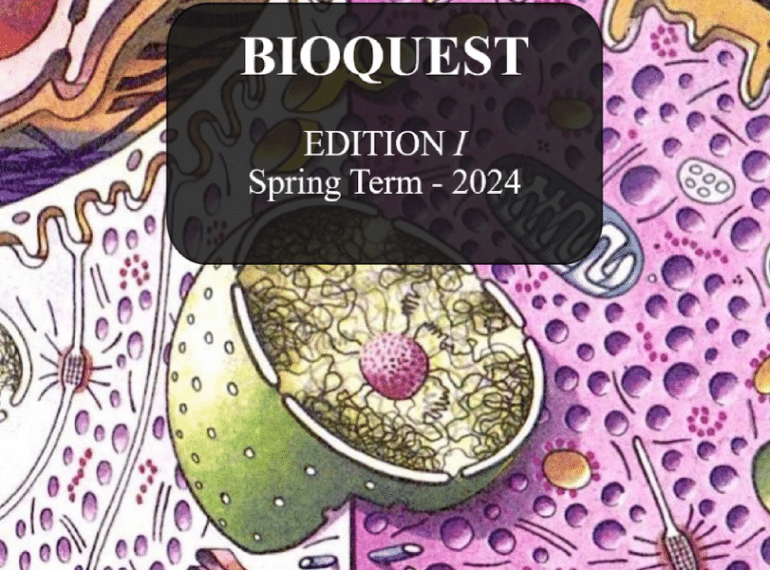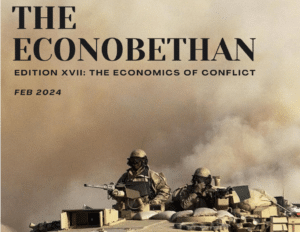
Bioquest, QE’s new, richly illustrated Science journal, features articles covering topics that range from a look at plant communication to an exploration of the eye’s importance in predicting human health.
 The first edition is contained within the pages of The Econobethan, the School’s well-established Economics and Politics magazine, but future editions are intended to be stand-alone publications.
The first edition is contained within the pages of The Econobethan, the School’s well-established Economics and Politics magazine, but future editions are intended to be stand-alone publications.
Edition XVII of The Econobethan takes as its theme The Economics of Conflict, looking at economic topics in theatres of war from Nazi Germany to the current conflicts in Ukraine and the Middle East.
Headmaster Neil Enright said: “My congratulations go to the team who have launched Bioquest – I hope it will be the first edition of many. It is also good to see such a high-quality edition of The Econobethan.
“Such publications provide excellent opportunities for boys to display genuine academic curiosity and scholarship. Through its thematic approach, The Econobethan demonstrates how the big issues cut across disciplines.
“It is important that our pupils develop an understanding of the world around them, and these publications show that they are taking great interest and thinking carefully about context.”
Bioquest is produced by a six-strong editorial team. One of them, Year 12’s Advik Balaji, appeals in his introduction for “dedicated scientists to contribute articles” for future editions.
Its six articles all feature colour illustrations and are all written by pupils in Year 12. They include Kavinayan Manivannan’s investigation of The Plants’ Trojan Horse, which explores plant cells’ use of RNA defence systems against necrotrophic fungi. Shivam Vyas looks at Microbiome Engineering in Plants, considering how a recent research breakthrough could “dramatically cut the use of pesticides and unlock opportunities to bolster plant health”.
 Seyed Jalili considers how the identification of CHIP (Clonal Hematopoiesis of Indeterminate Potential) in human blood cells might translate into effective treatments. Joshua John looks at the ethical implications of genetic screening in his piece entitled The Cost of a Human Life.
Seyed Jalili considers how the identification of CHIP (Clonal Hematopoiesis of Indeterminate Potential) in human blood cells might translate into effective treatments. Joshua John looks at the ethical implications of genetic screening in his piece entitled The Cost of a Human Life.
Within the Economics of Conflict-themed section of The Econobethan, the writers look both at particular wars and at economic lessons to be drawn from conflicts more generally. For example, Year 12’s Akheel Kale reflects on The Bizarre Nature of ‘Hitlernomics’ and Suryansh Sarangi, also of Year 12, explores the legacy of the British selling opium in China on the Chinese economy.
The magazine also includes a more general section on Economics, Politics and History.
- For those with access to the School’s eQE network, The Econobethan and Bioquest may be viewed here.
